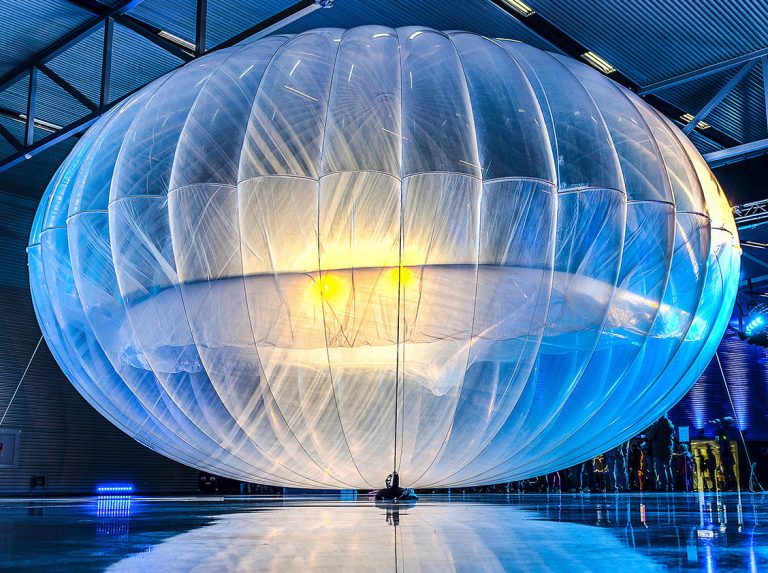Original post by Brogan Pratt on March 13, 2019

Project Loon
Google has a Loonatic idea to bring internet to the world; Balloon powered internet. If you haven’t heard of Project Loon, and the cool stuff it is doing like sending LTE recievers into the sky, bringing internet to rural Kenya this year, or providing disaster communication systems, check out my video here:
Google’s Insane Idea to Bring Internet To the World
All references included in Video Description.
This concept is really interesting. The idea being that Google will float balloons 40km in the sky that will provide remote locations with internet access. The video was produced very well and the presenter did a great job organizing and explaining in the video. Another impressive aspect connected to this post was the discussion that evolved in the comment section. I learned a lot about Google as a company, and it led me to a bit of a wormhole to learn about Alphabet and all of Google’s beta tested projects that have ended up in the “google graveyard.” There was also some really interesting discussion about what this project could mean politically for places such as China, which is currently experiencing “the great firewall.”
I will admit, I am not 100% on top of the latest tech news. However, I understand that the effects of tech development are incredibly widespread. With 5G on the way, we will be learning more and more about the political ramifications of internet connectivity. This makes me more skeptical of a project like Google’s Project Loon. While the idea itself might be good and might even have revolutionary potential, it could also lead to some serious issues connected to privacy and environmental degradation.
I will share some of the comments from the original post below.
Original Post by benson chang:
Great production quality! Did you have a green screen? In any case, internet access is so central to my life right now, going without it is almost unthinkable. This is a great project that Google has taken on, and as usual, their prototypes are promising. Herein lies the dilemma to my excitement. Historically, Google is great at making an idea happen, but horrible at actual production. During the test phase, Google products tends to be minimalistic, and works well, introducing novel features and high utility. Unfortunately, that’s where it tends to end. Google products (or Alphabet) tend to die upon leaving Beta (here lies all the products killed by Google: https://killedbygoogle.com/). Even if Project Loon is not killed off, can Google actually deliver the scalability needed to provide for 4 billion people your video states as not having internet access? If Project Loon becomes a reality, that is an exciting future indeed.
Original post by Carri-Ann Scott:
Hi, Brogan. Wow! Congratulations on creating such a slick OER. Your production skills are top-notch! The concept of Project Loon is certainly one relevant to the forecasting assignment and I agree that the potential for global internet access is intriguing and will be a game changer for society, politics and the important areas of disaster relief. The environmentalist in me worries about the sustainability of the balloon materials, what happens when they eventually fall and land in sensitive ecosystems and the 1-time use optics. Granted, that 1-time might be for 100 days, but how could the materials be recovered and reused. What happens if the balloon falls through a flight path at an inopportune time? Or rises through a flight path? Other than cost, I wonder what the benefits are to having Project Loon in place over a system of satellites. I don’t know enough about this area, but wouldn’t geosynchronous satellites last substantially longer and have a potentially larger reach? Perhaps not, as the great minds of Google have taken on this project as potentially sustainable, but it is a wonder nonetheless. You’ve sparked more questions for me, which is a great starting point for learning. Thanks for putting this on my radar.
Original Post by Vincent Dong:
Hi Brogan, Thanks for your sharing and your A3 assignment has triggered a fascinating topic. Since we are talking about the impact of future technology, personally I concern myself with the effects that Project Loon could bring to Chinese students. Recently I heard a saying that we will be the only generation in China’s history who has ever experienced the free Internet. Because of the existence of the Great Firewall (GFW), many Chinese young people have never been exposed to common Internet services like Google, Facebook, etc. Many of them don’t even think this is a problem. The young generation who lived in the Great Firewall from an early age has long been accustomed to the censorship system and learned to self-censor themselves to avoid touching the red lines in any situation. How will the information blockade shape the personality independence of China’s next generation, and thus affect China’s future cultural shaping? For Chinese students who are used to the Firewalls, what impacts and challenges will they face once Project Loon removes the blockade? This research topic is also of practical significance to students who are entirely occluded in developing countries with no access to the Internet at all. If Google’s Project Loon can successfully cross the Great Firewalls (personally not optimistic), it definitely would benefit Chinese students. Cheers!